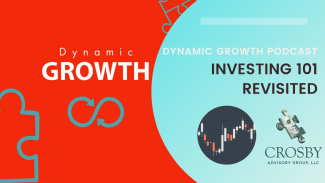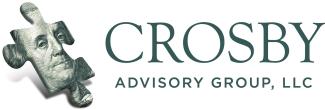
Investing 101 – Revisited with Macy Vogel
What type of designations should my advisor have?
The most common designations are CFP & CFA. While designations alone should not drive your decision, you should know that an advisor needs extremely sophisticated knowledge in order to obtain those credentials.
Whether you are new to investing or looking for a new advisor, use your intuition! We recommend you interview a couple of financial investors and ask them questions. What is their background? How do they get paid? Do they outsource your investments or take care of it themselves? Do they lose money if you lose money and make money when you do? It’s always a good thing when both parties have an incentive to grow your account.
Listen to a previous podcast for more in-depth information – Financial Advisor Red Flags podcast
How do I decide what kind of account I should open or contribute to?
We answer this question with a question! What are your goals and timeframe for the account? Anytime you invest you need to ask yourself what you want to do with the money that you’ll be making! Different accounts have different goals.
- ROTH / IRA – individual retirement account, long-term investments, more volatility, set and forget
- Non-qualified – account for money you can / will want to access
For example, if you are ear-marking this account for retirement – an IRA is a great option – invest and grow without taxes. If you want to retire early, you may want a non-qualified account so that your account will pay you when you’re ready.
How much should I put towards my investments each month?
Historically, most investment strategies are a three-legged stool of social security, pension and savings. An investor in their 20s, however, may not have a pension so their approach will be different than someone closer to retirement.
If you are a client of ours, you may have started to see our Financial Scorecards. In those Scorecards, we rate different areas of your overall wealth accumulation plan to see any areas that may need addressed. Keep in mind, the end goal is for you to retire on your terms. The highest weighted factor in our Scorecard is your savings rate. Ideally you should contribute 15-20% each month.
No matter where you’re at, it’s never too late to start! Of course, the earlier you start the more you’ll make, so set a goal and get a plan in place sooner rather than later.
When deciding on stocks, what are the key factors to look at?
Go back to your goals and recall what you are looking for when investing! We always tell new investors to buy what they know – look at stocks for companies and / or products that you use regularly. Gravitate towards innovative companies that are best in class in their industry and have a long track record of performing. If you can pick them up at a bargain, even better!
Remember, to invest you don’t have to even buy a single stock. You can get broad market exposure with the S&P 500 or NASDAQ. A good way to learn is to jump in and get started!
Want more detail? Check out our previous Investing 101 podcast.
What is the #1 piece of investment advice you would give someone?
Your mindset is key – followed by consistency and time.
It is easy to get emotional about market ups and downs. Keep your mindset trained on your end goal and what it takes to achieve it and ultimately your decisions will be much easier to make.
Please note: This content is not a direct recommendation for investment. Investing involves risk including the potential loss of principal. Not all investments are suitable for all people. Crosby Advisory Group, LLC is a registered investment advisor in Ohio, Florida, and Texas.

